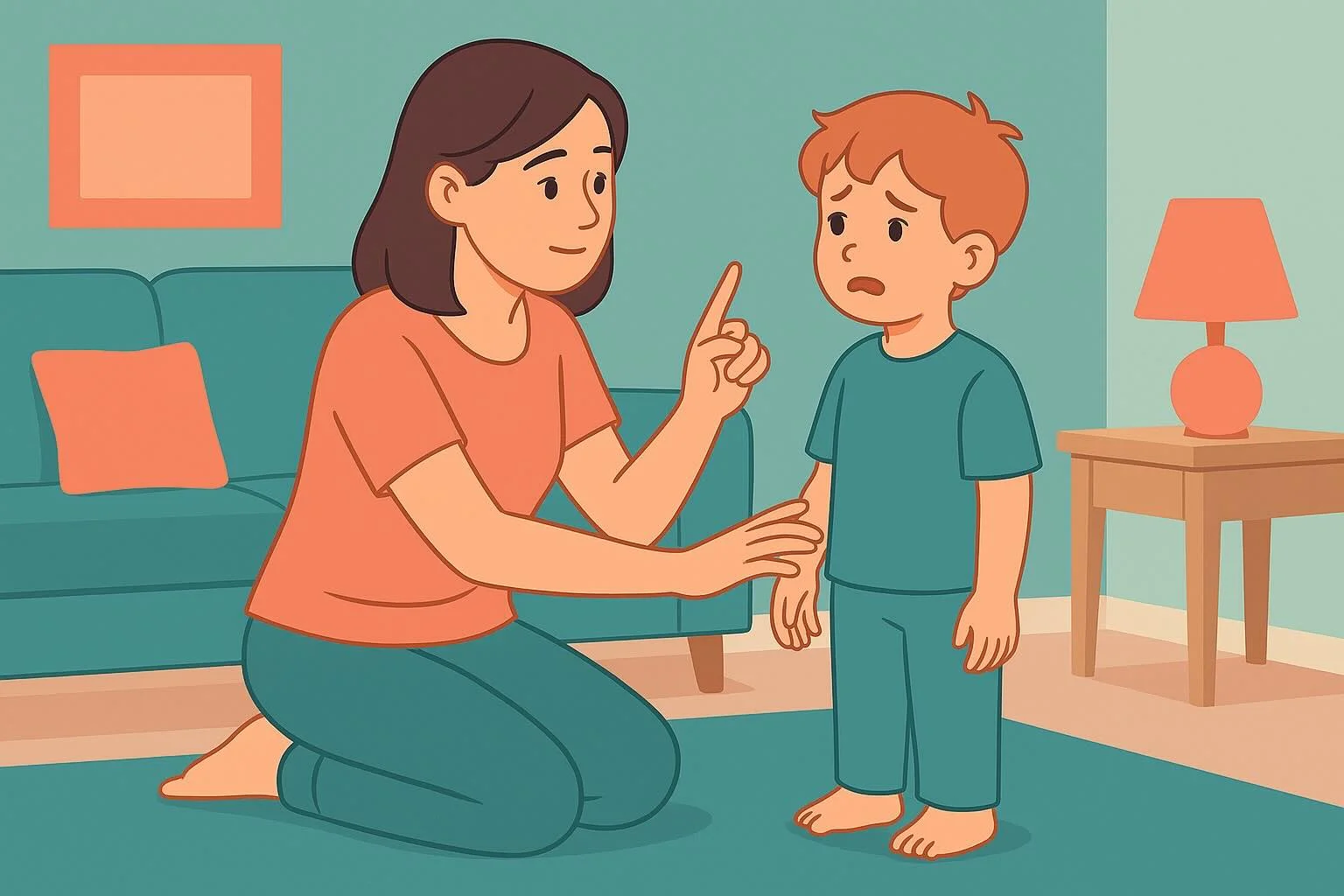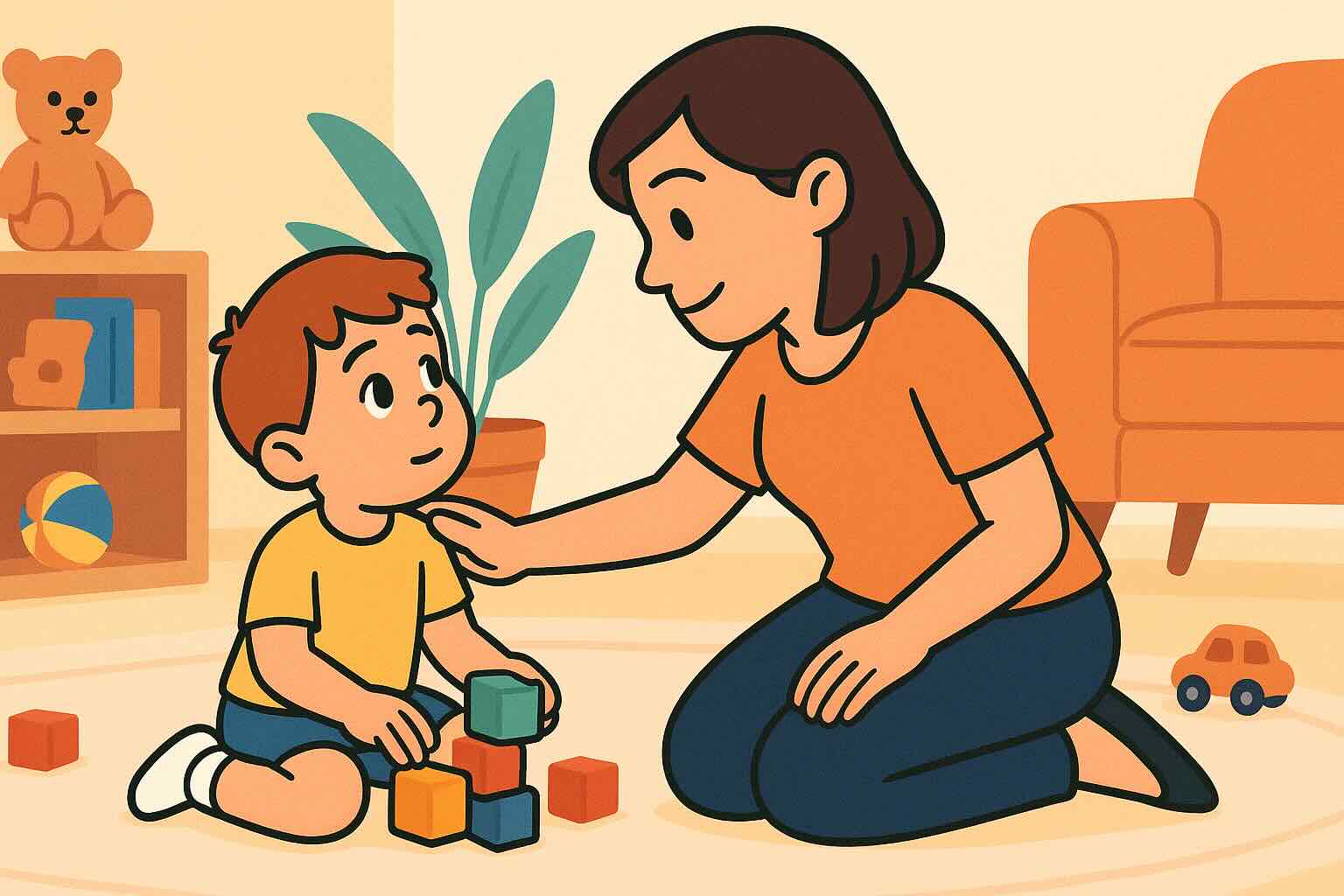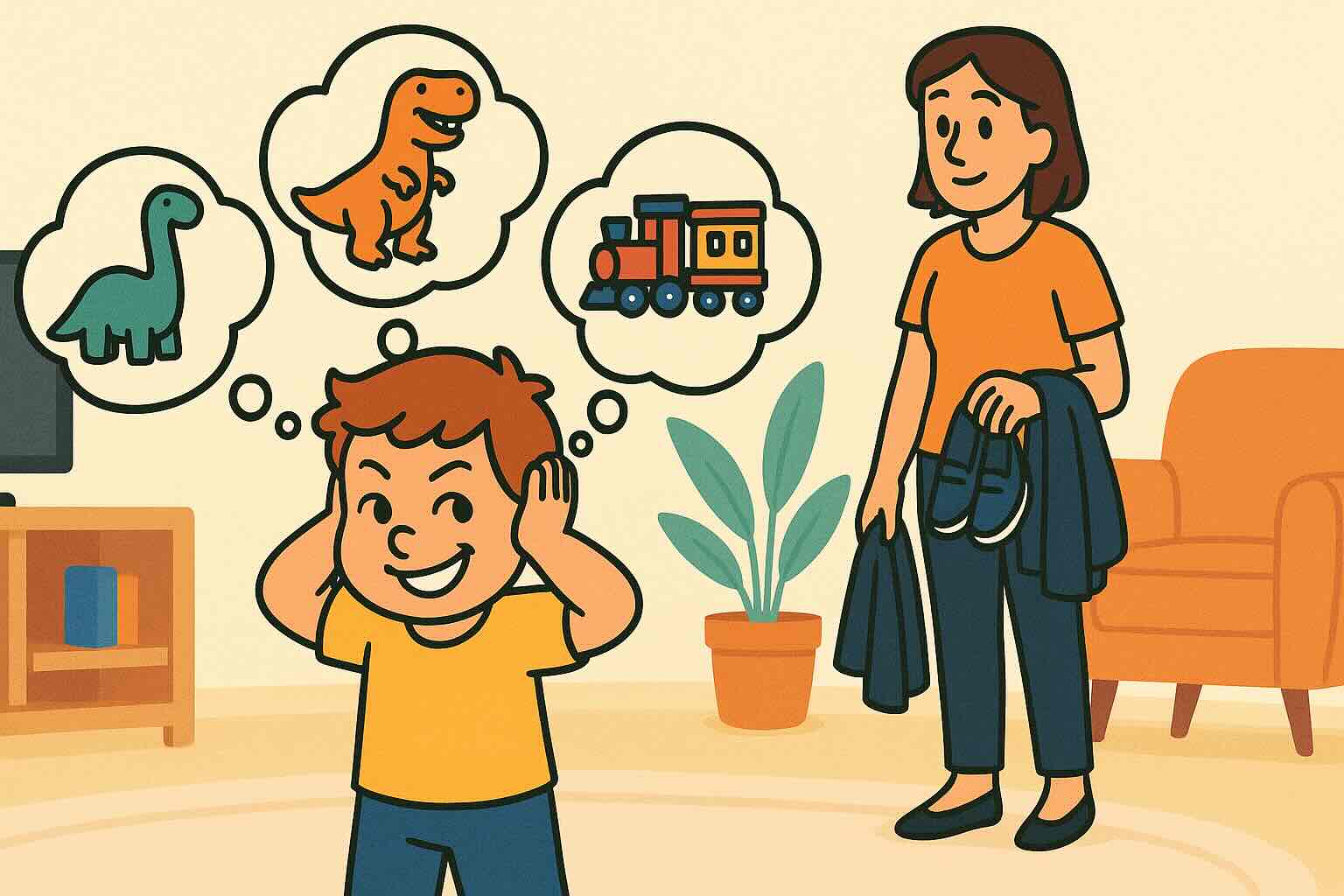Positive Discipline for 5 Year Olds: School Readiness

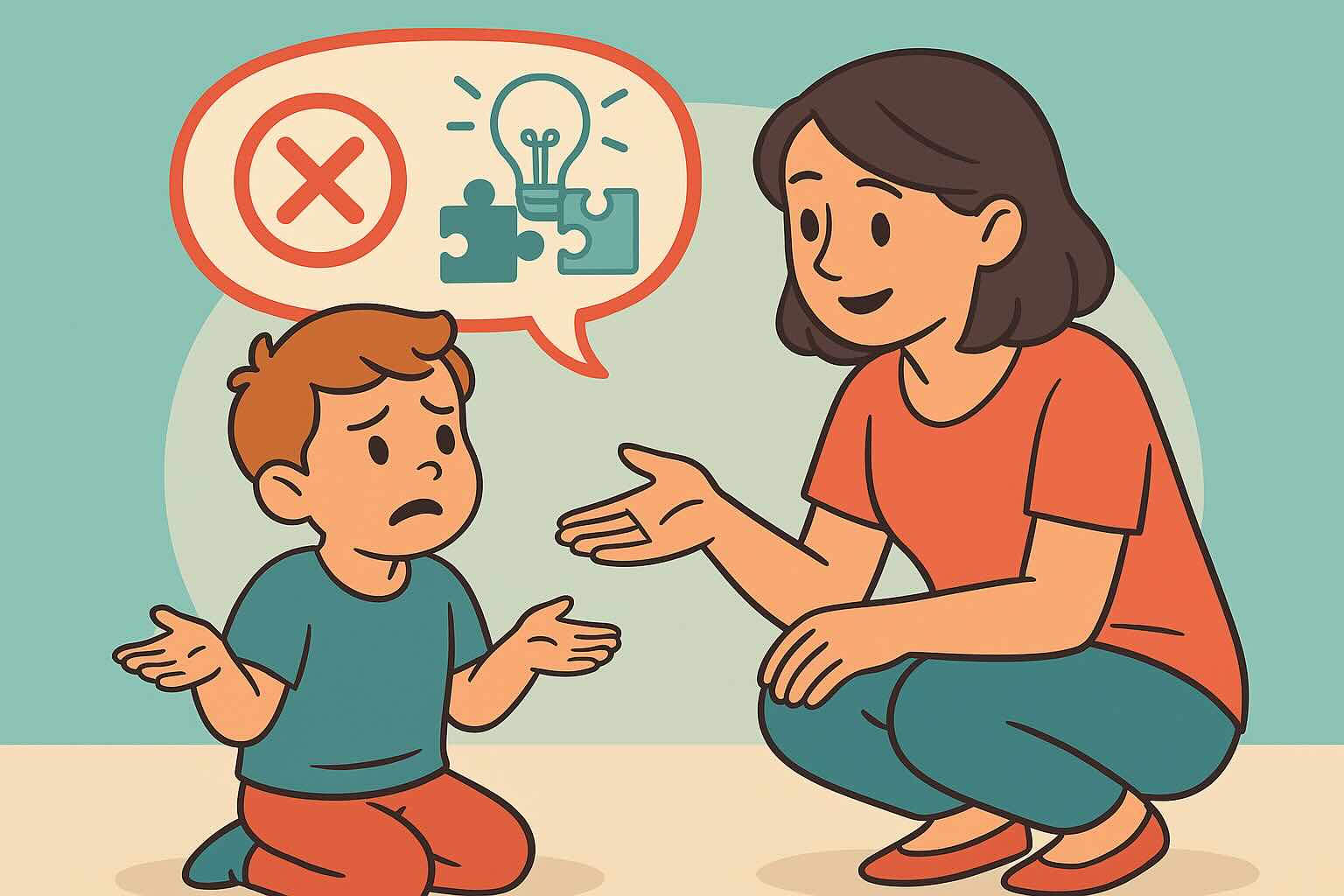
Your 5-year-old comes home from kindergarten and immediately melts down because their friend didn't want to play with them at recess. Twenty minutes later, they're refusing to do homework and declaring that school is "stupid." Your instinct might be to lecture them about attitude or implement consequences for their behavior. But what if this moment is actually an opportunity to build emotional intelligence and problem-solving skills?
Positive discipline for 5-year-olds recognizes their emerging cognitive abilities while honoring their continued need for emotional support and skill-building. Five-year-olds are at a unique developmental stage - they can engage in complex conversations and understand abstract concepts, yet they still have the emotional regulation of young children. This is when positive discipline becomes a powerful tool for building character, responsibility, and internal motivation.
This comprehensive guide provides specific examples, detailed scripts, and age-appropriate strategies for common 5-year-old challenges. You'll learn how to support their growing independence while building the emotional intelligence and self-control skills that will serve them throughout their lives. For related strategies, see our guides on building cooperation without rewards and natural consequences vs punishment.
What You'll Learn in This Guide
- The 5-Year-Old's Expanding World - Understanding their cognitive and emotional development
- Building Responsibility Without Overwhelming - Age-appropriate expectations and support
- School-Related Behavior Challenges - Navigating kindergarten social and academic pressures
- Advanced Problem-Solving Skills - Developing their reasoning and decision-making abilities
- Emotional Regulation at a New Level - Supporting bigger feelings and social complexities
- Real-World Scenario Solutions - Specific examples with detailed responses
- Natural Consequences That Teach - Age-appropriate learning opportunities
- Building Internal Motivation - Moving from external control to self-directed behavior
Estimated reading time: 17 minutes
Understanding Your 5-Year-Old's Developmental Complexity
What's New at Five
Cognitive Advances:
- Abstract thinking emerges - Can understand concepts like fairness, friendship, and rules
- Memory improvements - Remember events, rules, and conversations from days ago
- Problem-solving abilities - Can think through simple cause-and-effect scenarios
- Language sophistication - Express complex thoughts and engage in detailed discussions
- Beginning moral reasoning - Understand why rules matter beyond just avoiding consequences
Social and Emotional Growth:
- Friendship awareness - Care deeply about peer relationships and social acceptance
- Emotional complexity - Experience mixed feelings and more nuanced emotions
- Empathy development - Beginning to genuinely understand others' perspectives
- Identity formation - Strong sense of likes, dislikes, and personal preferences
- Justice orientation - Deep concern about fairness and rule-following
Still Developing:
- Impulse control - Knowledge doesn't always translate to behavior control
- Emotional regulation - Big feelings can still overwhelm their thinking brain
- Stress tolerance - School and social pressures can cause regression
- Consistent behavior - May act mature one moment and much younger the next
The School-Age Brain Reality
Why 5-year-olds can seem contradictory:
- They understand rules intellectually but may lack emotional regulation to follow them consistently
- School pressures can exhaust their self-control reserves
- Social complexities create new stressors they're still learning to navigate
- They want independence but still need significant support
What this means for discipline:
- They can engage in sophisticated problem-solving discussions
- They benefit from understanding the "why" behind expectations
- They need emotional support even when they seem cognitively mature
- Natural consequences can be more complex and delayed than with younger children
Core Principles for 5-Year-Old Positive Discipline
Principle 1: Respect Their Reasoning While Supporting Their Emotions
Balance intellectual engagement with emotional nurturing.
Traditional approach: "You're old enough to know better!" Positive discipline: "You understand the rule, and you're having trouble following it. Let me help."
Principle 2: Build on Their Justice Orientation
Use their sense of fairness to teach responsibility and empathy.
Traditional approach: "Life isn't fair, deal with it." Positive discipline: "You're concerned about fairness. Let's figure out how to make this work for everyone."
Principle 3: Develop Problem-Solving Partnership
Include them as active participants in solving family and personal challenges.
Traditional approach: "This is what you're going to do to fix this." Positive discipline: "What ideas do you have for solving this problem?"
Principle 4: Connect Choices to Character
Help them understand how their actions reflect the kind of person they want to be.
Traditional approach: Focus only on rule compliance Positive discipline: "What kind of friend/student/family member do you want to be?"
Real-Life Positive Discipline Examples by Situation
Scenario 1: Homework Resistance and School Frustration
The Situation: Your 5-year-old comes home from school overwhelmed and refuses to do homework, saying "I hate school! It's too hard and I'm never going back!"
Traditional Response: "Stop being dramatic! You have to do your homework right now or you'll lose screen time tonight!"
Positive Discipline Response:
Step 1 - Acknowledge Their Big Feelings "School felt really hard today. You're feeling overwhelmed and frustrated about your homework."
Step 2 - Validate Their Experience "Learning new things can be challenging. It sounds like something specific was difficult today."
Step 3 - Gather Information "Tell me more about what made school feel so hard. What part was the most frustrating?"
Step 4 - Problem-Solve Together "So writing letters is tricky, and you feel worried about not doing them perfectly. What ideas do you have for making this easier?"
Step 5 - Offer Support and Choices "Would it help to do homework after snack and some playtime, or would you rather get it done first? Should we work on it together or would you like to try independently with me nearby?"
Step 6 - Connect to Growth Mindset "Learning is hard work, and that's how our brains grow. You don't have to be perfect - you just have to try your best."
Why This Works:
- Validates the legitimate stress of school demands
- Gathers information to address root causes
- Builds problem-solving skills around academic challenges
- Offers support without taking over responsibility
- Teaches growth mindset and resilience
Scenario 2: Social Conflicts and Friendship Drama
The Situation: Your 5-year-old comes home upset because their best friend played with someone else at recess and said they "weren't best friends anymore."
Traditional Response: "Don't worry about it. Just find other friends to play with. You're being too sensitive."
Positive Discipline Response:
Step 1 - Honor Their Social World "Friendships are so important to you. It sounds like something hurtful happened with Emma today."
Step 2 - Validate Their Emotional Experience "When someone we care about says we're not best friends, that feels really sad and confusing."
Step 3 - Help Them Process the Experience "What do you think Emma was feeling when she said that? Sometimes people say things they don't mean when they're upset or trying to figure out friendships too."
Step 4 - Build Social Problem-Solving Skills "What are some ideas for handling friendship problems? Have you ever said something you didn't mean when you were upset?"
Step 5 - Support Their Social Development "Tomorrow you could talk to Emma about how that felt, or you could wait and see how things go, or you could play with other friends too. What feels right to you?"
Step 6 - Connect to Character Values "What kind of friend do you want to be? How do you want to treat people when you're upset with them?"
Why This Works:
- Takes their social world seriously
- Builds empathy and perspective-taking skills
- Teaches conflict resolution strategies
- Empowers them to make social choices
- Connects behavior to character development
Scenario 3: Sibling Conflicts with Increased Complexity
The Situation: Your 5-year-old and 3-year-old are fighting over a toy, but now your 5-year-old is using manipulation tactics like "If you don't give me the toy, I won't be your sister anymore."
Traditional Response: "You're the older one, you should know better! Give your sister the toy and stop being mean!"
Positive Discipline Response:
Step 1 - Address Both Children's Needs "I see two children who both want the same toy. And I hear some words that might be hurting feelings."
Step 2 - Focus on the Behavior, Not Character "Emma, you're trying to get the toy by saying you won't be sisters. That's a strategy that can hurt people's feelings."
Step 3 - Teach Empathy and Impact "Look at your sister's face. How do you think she feels when you say you won't be her sister anymore?"
Step 4 - Problem-Solve the Original Conflict "Now let's solve the toy problem. You both want to play with it. What are some fair ways to handle this?"
Step 5 - Teach Better Strategies "Next time you really want something your sister has, what are some kind ways to ask? What could you do if she says no?"
Step 6 - Reinforce Family Bond "You two will always be sisters, even when you disagree about toys. Let's figure out how to solve problems in ways that keep our family feeling good."
Why This Works:
- Addresses the manipulation without shame
- Builds empathy for sibling relationships
- Teaches better conflict resolution strategies
- Reinforces family bonds over material conflicts
- Guides toward problem-solving rather than power struggles
Scenario 4: Chores and Household Responsibility Resistance
The Situation: Your 5-year-old is supposed to set the table for dinner but "forgets" every day, then argues when reminded, saying it's "not fair" that they have to help when adults don't give them money for it.
Traditional Response: "Life isn't fair! You live in this house so you help with chores! No dinner until the table is set!"
Positive Discipline Response:
Step 1 - Acknowledge Their Perspective "You're thinking about fairness and wondering why you should help without getting paid. That shows you're thinking about how families work."
Step 2 - Explain Family Teamwork "In our family, everyone contributes because we all live here together. We help each other because we care about each other, not because we get paid."
Step 3 - Connect to Their Values "What kind of family member do you want to be? Someone who helps the team or someone who only helps when they get something for it?"
Step 4 - Problem-Solve the Forgetting "You keep forgetting to set the table. What ideas do you have for remembering? Should we make a chart, set a timer, or would you prefer I remind you once?"
Step 5 - Natural Consequences "When the table isn't set, we can't eat dinner together as a family. If you'd like to eat with us, the table needs to be ready."
Step 6 - Appreciate Their Contribution "When you set the table, it shows you care about our family time together. I love eating dinner with you."
Why This Works:
- Validates their thinking about fairness
- Teaches family values and contribution
- Builds intrinsic motivation rather than external rewards
- Involves them in solving the memory problem
- Uses natural consequences that connect to family values
Scenario 5: Emotional Overwhelm and Regression
The Situation: Your usually mature 5-year-old has a complete meltdown over a minor disappointment, acting much younger and refusing all comfort or problem-solving attempts.
Traditional Response: "You're acting like a baby! Five-year-olds don't act like this! Go to your room until you can behave appropriately!"
Positive Discipline Response:
Step 1 - Recognize Developmental Reality "You're having such big feelings right now. Sometimes when we're overwhelmed, we need extra support even when we're growing up."
Step 2 - Offer Calm Presence "I'm going to stay here with you while you work through these feelings. You don't have to be perfect all the time."
Step 3 - Validate Without Fixing "This disappointment feels huge right now. Sometimes small things can feel big when we're tired or stressed."
Step 4 - Support Their Regulation "What helps your body feel calmer? Should we breathe together, would you like a hug, or do you need some quiet space?"
Step 5 - Connect After the Storm "That was hard. You worked through those big feelings. What do you think triggered such a strong reaction?"
Step 6 - Learn Together "What could help next time you feel overwhelmed like that? What would be good for you to remember?"
Why This Works:
- Normalizes developmental ups and downs
- Provides co-regulation during emotional overwhelm
- Doesn't punish them for having big feelings
- Teaches self-awareness and coping strategies
- Builds emotional intelligence through reflection
Age-Appropriate Natural Consequences for 5-Year-Olds
Complex Consequences 5-Year-Olds Can Understand
5-year-olds can learn from consequences that:
- May be delayed by hours or even a day
- Involve social or relationship impacts
- Connect to abstract concepts like trust, fairness, or responsibility
- Have multiple layers of cause and effect
Advanced Natural Consequence Examples
Academic Responsibility:
- Situation: Doesn't complete homework
- Natural consequence: Teacher follows up, missing recess to finish work
- Your support: "When homework isn't finished, teachers need to find other times for you to complete it. What would help you get it done at home?"
Social Relationships:
- Situation: Bossy or excluding behavior with friends
- Natural consequence: Friends don't want to play, social isolation
- Your support: "When we're bossy, friends don't enjoy being with us. What kind of friend do you want to be?"
Personal Property:
- Situation: Doesn't take care of special belongings
- Natural consequence: Items get lost, broken, or worn out
- Your support: "When we don't take care of our special things, they don't last as long. What do you notice about your bike/toy/book?"
Time Management:
- Situation: Dawdling during morning routine
- Natural consequence: Less time for preferred activities, rushing feels unpleasant
- Your support: "When we move slowly in the morning, there's less time for fun before school. How did that feel today?"
Family Contribution:
- Situation: Doesn't help with assigned family responsibilities
- Natural consequence: Family functioning is disrupted, others have to take over
- Your support: "When everyone doesn't do their part, it's harder for our family to work well together. What do you notice about our morning when the table isn't set?"
Creating Logical Consequences for Complex Behaviors
Trust and Honesty Issues:
- Situation: Lying about completion of responsibilities
- Logical consequence: Increased supervision until trust is rebuilt
- Script: "When there's dishonesty, I need to check things myself until I can count on your word again. How can we rebuild trust?"
Aggressive or Hurtful Behavior:
- Situation: Intentionally hurting sibling's feelings
- Logical consequence: Make amends and work to repair relationship
- Script: "When we hurt someone's feelings, we need to work to repair the relationship. What would help your sister feel better?"
Misuse of Privileges:
- Situation: Using screen time inappropriately or breaking media rules
- Logical consequence: Lose privilege until demonstrating responsibility
- Script: "Screen time is a privilege that requires following our family rules. When can you show me you're ready to try again?"
Building Advanced Problem-Solving Skills
The "Family Meeting" Approach
Regular family meetings help 5-year-olds:
- Practice problem-solving skills
- Feel heard and valued in family decisions
- Learn to consider multiple perspectives
- Develop communication and negotiation skills
Sample family meeting structure:
- Appreciations: Each person shares something positive about other family members
- Problem-solving: Address ongoing family challenges together
- Planning: Discuss upcoming events, changes, or goals
- Fun: Plan family activities or special time together
Advanced "What If" Thinking
5-year-olds can engage in hypothetical problem-solving:
- "What if you forgot your lunch at school - what are your options?"
- "What if a friend wants you to do something that breaks family rules?"
- "What if you make a mistake and break something at someone else's house?"
Building decision-making skills:
- Present them with age-appropriate choices and let them experience outcomes
- Ask "What might happen if...?" before they make decisions
- Help them evaluate their choices afterward: "How did that work out?"
Teaching Moral Reasoning
Connect daily situations to character values:
- "What kind of person do you want to be in this situation?"
- "How would you want to be treated if you were in their position?"
- "What would happen if everyone made that choice?"
- "What does being a good friend/student/family member look like here?"
Emotional Intelligence and Self-Regulation
Expanding Emotional Vocabulary and Understanding
5-year-olds can learn sophisticated emotional concepts:
- Multiple emotions: "You can feel excited about the party AND nervous about not knowing anyone there"
- Emotional triggers: "When you're tired, small problems feel much bigger"
- Others' emotions: "Look at Dad's face - what do you think he's feeling?"
- Emotional choices: "You can't control feeling angry, but you can control what you do when you're angry"
The THINK Strategy for Self-Regulation
Teach 5-year-olds to THINK before acting:
T - Take a breath "When you feel a big emotion, stop and take a deep breath"
H - How am I feeling? "Name the feeling - am I angry, sad, frustrated, excited?"
I - Is this helpful? "Will what I'm about to do help the situation or make it worse?"
N - Name my options "What are different ways I could handle this?"
K - Keep going with the best choice "Pick the option that fits the kind of person I want to be"
Teaching Empathy and Perspective-Taking
Real-life empathy building:
- Point out others' emotions in natural situations
- Ask "How do you think they felt when...?"
- Share your own emotions appropriately: "I felt worried when you didn't come when I called"
- Read books that explore different characters' perspectives
- Role-play challenging social situations
School-Related Behavior Support
Understanding School Behavior Challenges
Common reasons 5-year-olds struggle at school:
- Overwhelm from new academic and social demands
- Fatigue from using self-control all day
- Difficulty with transitions and schedule changes
- Social navigation challenges with peers
- Perfectionism and fear of making mistakes
Partnering with Teachers
Collaborative approach with school:
- Share what works at home for behavior support
- Ask teachers about triggers and patterns they observe
- Develop consistent approaches between home and school
- Focus on skill-building rather than punishment
- Regular communication about progress and challenges
Home Support for School Success
Building skills at home that transfer to school:
- Practice following multi-step directions
- Role-play social situations and conflict resolution
- Build emotional regulation skills during calm times
- Ensure adequate sleep, nutrition, and downtime
- Create predictable routines that reduce overall stress
Building Internal Motivation and Character
Moving Beyond Reward Charts
Why external reward systems can backfire at this age:
- 5-year-olds can become dependent on external motivation
- Rewards can undermine intrinsic interest in learning and helping
- They may start asking "What do I get?" for basic expectations
- Character development requires internal values, not external incentives
Fostering Intrinsic Motivation
Focus on internal satisfaction:
- "How did it feel when you helped your friend who was sad?"
- "Look how organized your room is now - how does that feel?"
- "You worked really hard on that project. What are you most proud of?"
- "When you tell the truth even when it's hard, that shows real courage"
Connect to identity and character:
- "You're becoming someone who can be counted on"
- "That choice shows you're growing into a caring person"
- "You're developing into someone who helps their family"
- "That was a choice that shows integrity"
Building Future-Focused Thinking
Help them understand long-term consequences:
- "When you practice piano even when you don't feel like it, you're building a skill you'll have forever"
- "When you're honest, people learn they can trust you"
- "When you work hard in school, you're preparing your brain for learning bigger things"
- "When you're kind to people, you build friendships that last"
When 5-Year-Olds Need Extra Support
Recognizing When Normal Development Needs Professional Support
Consider consulting a professional if:
- Aggressive behaviors are frequent, intense, or dangerous
- Your child seems chronically anxious, sad, or overwhelmed
- School reports significant ongoing behavior concerns
- Family functioning is severely impacted despite consistent approaches
- Your child expresses hopelessness or extremely negative self-talk
Supporting Children with Additional Needs
Some 5-year-olds may need extra support for:
- Sensory processing differences
- Attention and focus challenges
- Anxiety or perfectionism
- Social skills development
- Emotional regulation difficulties
Adaptations might include:
- Breaking tasks into smaller steps
- Providing sensory breaks
- Using visual schedules and reminders
- Teaching specific social scripts
- Building in more downtime and stress reduction
4-Week Implementation Plan for 5-Year-Olds
Week 1: Foundation and Understanding
- Begin acknowledging their perspective before correcting behavior
- Start using "What do you think?" questions for problem-solving
- Practice staying calm during their emotional moments
- Begin weekly family meetings or check-ins
Week 2: Skill Building and Natural Consequences
- Implement the THINK strategy for emotional regulation
- Let age-appropriate natural consequences happen
- Focus on building empathy through real-life situations
- Continue collaborative problem-solving approaches
Week 3: Character and Motivation Development
- Connect daily choices to character values
- Focus on internal motivation over external rewards
- Increase their responsibilities and decision-making opportunities
- Practice advanced social problem-solving
Week 4: Integration and Long-Term Planning
- Evaluate what approaches are working best
- Partner with school on consistent strategies
- Plan for continued character development
- Celebrate their growth and capabilities
Success Indicators for 5-Year-Old Positive Discipline
Short-Term Changes (2-3 weeks)
- Uses emotional vocabulary to express feelings
- Begins offering solutions to problems
- Shows increased empathy and concern for others
- Demonstrates better self-control in challenging situations
Medium-Term Growth (1-2 months)
- Takes on household responsibilities with minimal reminders
- Handles school social situations more independently
- Shows genuine cooperation based on understanding
- Demonstrates problem-solving skills in new situations
Long-Term Development (3-6 months)
- Strong emotional regulation skills for their age
- Internal motivation for positive behavior
- Empathy and consideration in relationships
- Growing sense of personal responsibility and integrity
- Secure attachment and family partnership
Key Takeaways: Positive Discipline for 5-Year-Olds
- ✅ Honor their cognitive growth while supporting continued emotional development needs
- ✅ Build on their sense of fairness to teach responsibility and empathy
- ✅ Engage them as problem-solving partners while maintaining appropriate adult guidance
- ✅ Use natural consequences that can be more complex and delayed than with younger children
- ✅ Support their school experience through home skill-building and teacher partnership
- ✅ Focus on character development and internal motivation over compliance
- ✅ Validate their social world while teaching relationship skills
- ✅ Build emotional intelligence through real-life teaching moments
- ✅ Connect daily choices to long-term character and identity development
- ✅ Maintain developmental perspective - they're still young children needing support
Remember: Your 5-year-old is developing remarkable capabilities while still needing significant emotional support and guidance. When you respond to their challenges with respect for their growing minds and compassion for their developing hearts, you're building the foundation for a lifetime of emotional intelligence, strong character, and intrinsic motivation. The investment you make now in positive discipline will serve them well throughout their academic years and beyond.
This article is based on child development research, educational psychology, and positive discipline principles. Every child develops uniquely, and building new family patterns takes time and consistency. Focus on progress and relationship-building rather than perfection as you develop these character-building parenting skills.
Challenging Moments Support
Access step-by-step parenting strategies, quick tips, and age-specific guidance for difficult situations when you need it most.
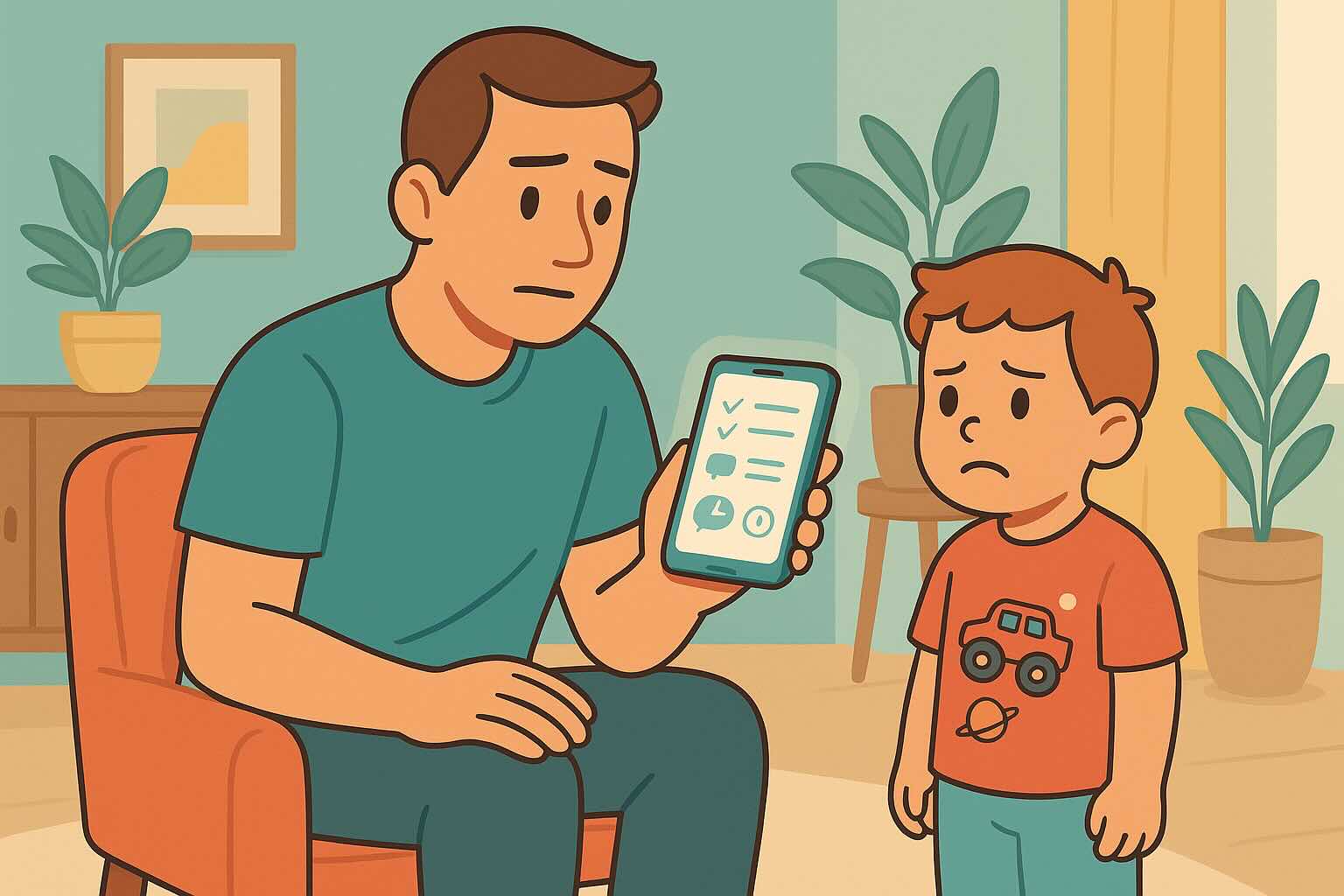
24/7 AI Parenting Assistant
Get instant, personalized advice with expert-curated parenting knowledge. Chat with your AI coach anytime, anywhere.

Boundary Setting Scripts
Set firm, loving boundaries without punishment using evidence-based scripts and strategies that build cooperation and respect.
Frequently Asked Questions
Need personalized support?
RootWise's AI coach can provide tailored strategies for your specific situation, available 24/7 when you need it most.
Learn More About AI Coaching →